Job
A job is created then published, so that candidates can apply and interview for the role.
Create a job
To create a new job you need to specify
- Title
- Slug (lowercase alphabetical characters only)
- Job ad URL and/or Description
- If the description is not provided the job ad will attempt to be downloaded from the public URL
- Interview Style
- Structured: This style a good fit for technical roles that benefit from candidates using the STAR (opens in a new tab) method to answer the question.
- Casual: This style is a good fit for roles where candidates can engage in a more informal discussion.
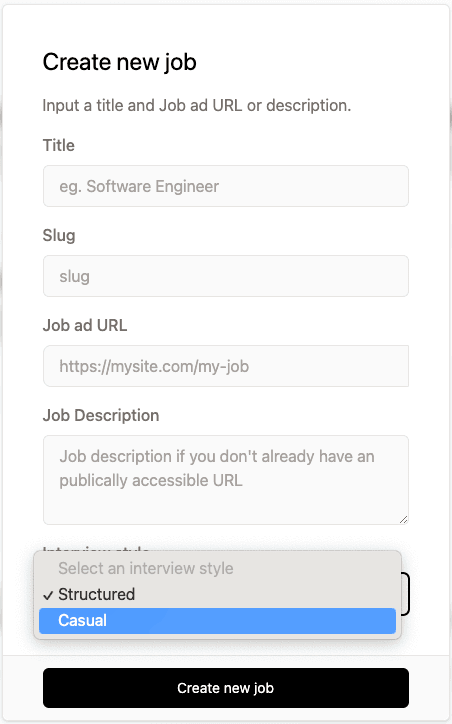
Job tabs
The jobs page has a tabbed control, with a series of sections, most of which are populated by fairgo.
Job Info
This tab includes information provided when the job was created
- Title
- Created or Evaluated date
- Status: initially
CreatedthenReadyafter content is parsed. - Hiring Manager: the user who created the role
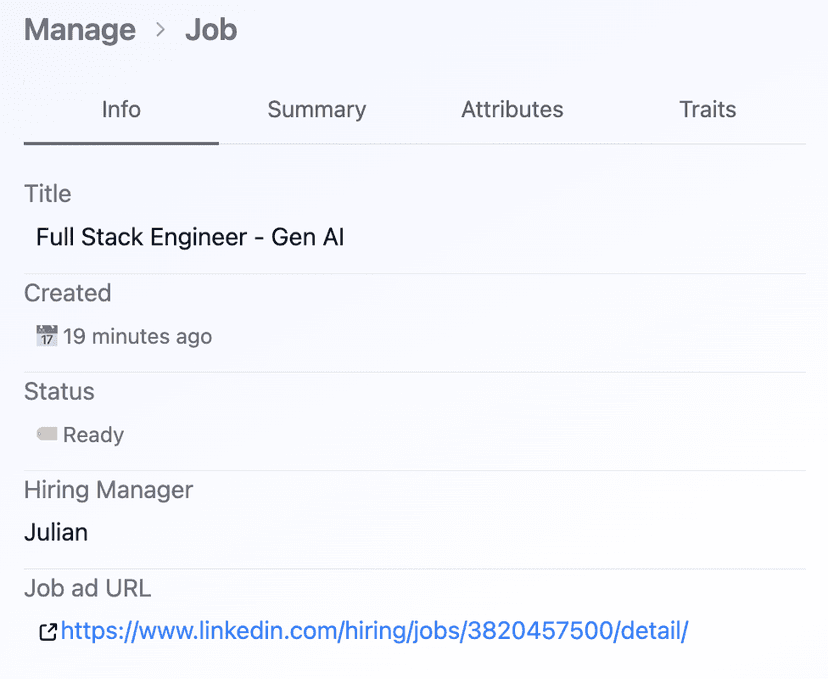
Job Summary
This tab includes a summarised verison of the job ad in a few sentences.
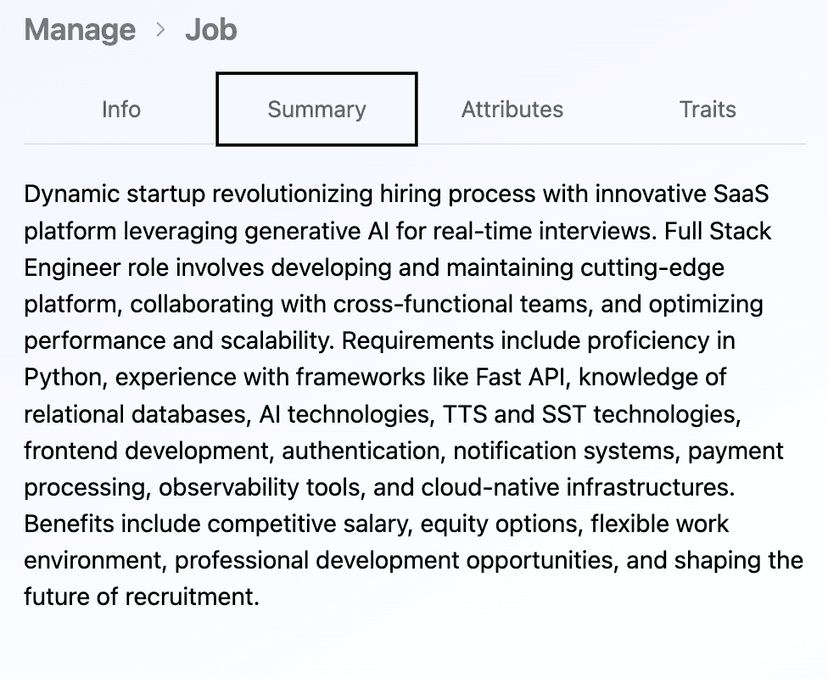
Job Attributes
This tab contains a series of attributes extracted from the job ad including:
- Company Name
- Industry / Occuptation
- Work type:
Full time,Part time,ContractorCasual - Workplace:
Onsite,HybridorRemote - Location
- Education Level
- Years of experience
- Annual Salary range
- List of Benefits
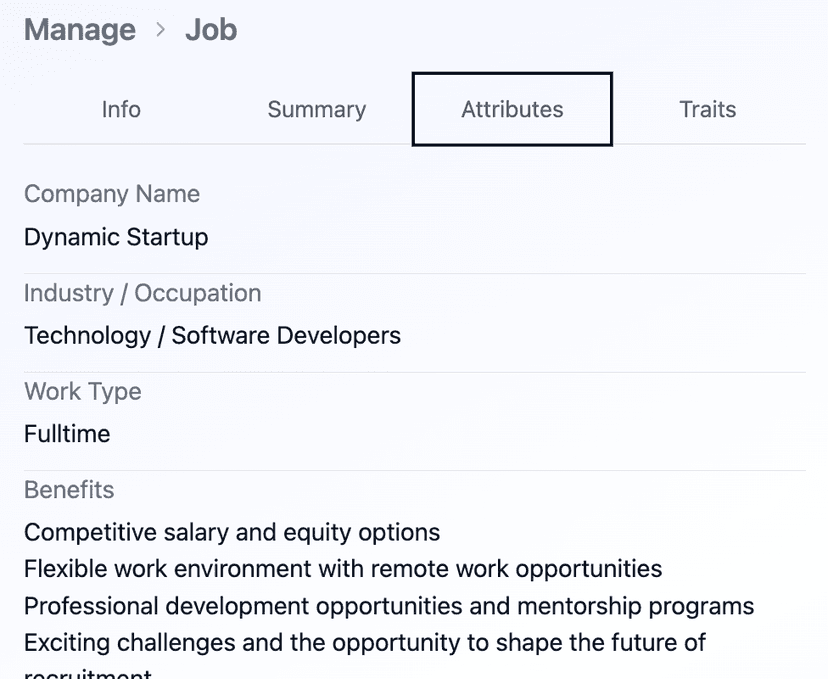
Job Traits
This tab contains the Big Five Personality traits (opens in a new tab) matched to O*NET (opens in a new tab) occupatations.
- Openness to experience (inventive/curious vs. consistent/cautious)
- Conscientiousness (efficient/organized vs. extravagant/careless)
- Extraversion (outgoing/energetic vs. solitary/reserved)
- Agreeableness (friendly/compassionate vs. critical/judgmental)
- Neuroticism (sensitive/nervous vs. resilient/confident)
Included is a level (High or Low) and analysis for the job industry and occupation.
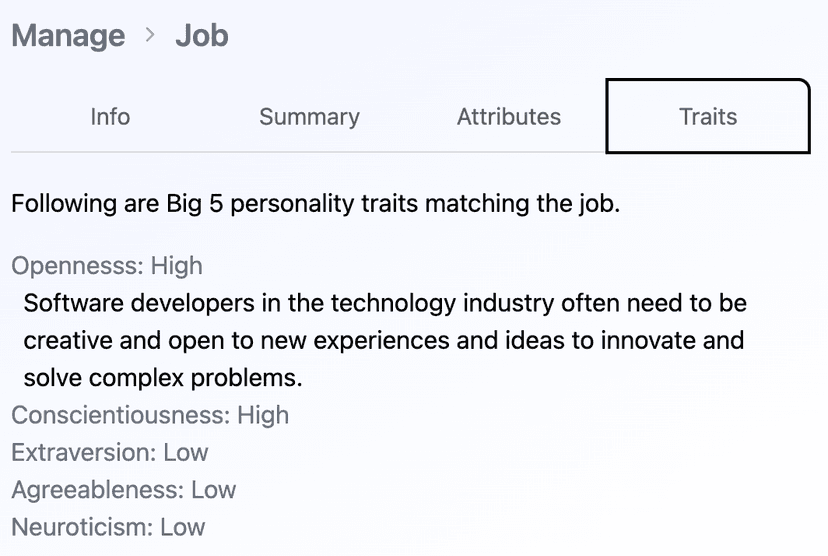
You can click on each of the traits to see the analysis.
Job Questions
The next section includes questions that have been automatically generated from the job descriptions. These questions can be edited by the hirer, but we recommend the following best practices:
- Align with Job Requirements: Ensure each question reflects key responsibilities, required skills, and the experience outlined in the job ad.
- Assess Soft Skills: Include questions that evaluate problem-solving, communication, and teamwork, not just technical knowledge.
- Open-Ended for Depth: Use open-ended questions to encourage candidates to provide detailed responses and share real-world examples.
- Focus on Behavioral Indicators: Ask questions based on the STAR method (Situation, Task, Action, Result) to assess past behavior and predict future performance.
Introductory Question
An introductory question is provided as an opportunity for the candidate to provide a little bit of background, and let them settle into the interview experience.
Interview questions
Interview questions are a combination of behavioural and techincal / competency based questions.
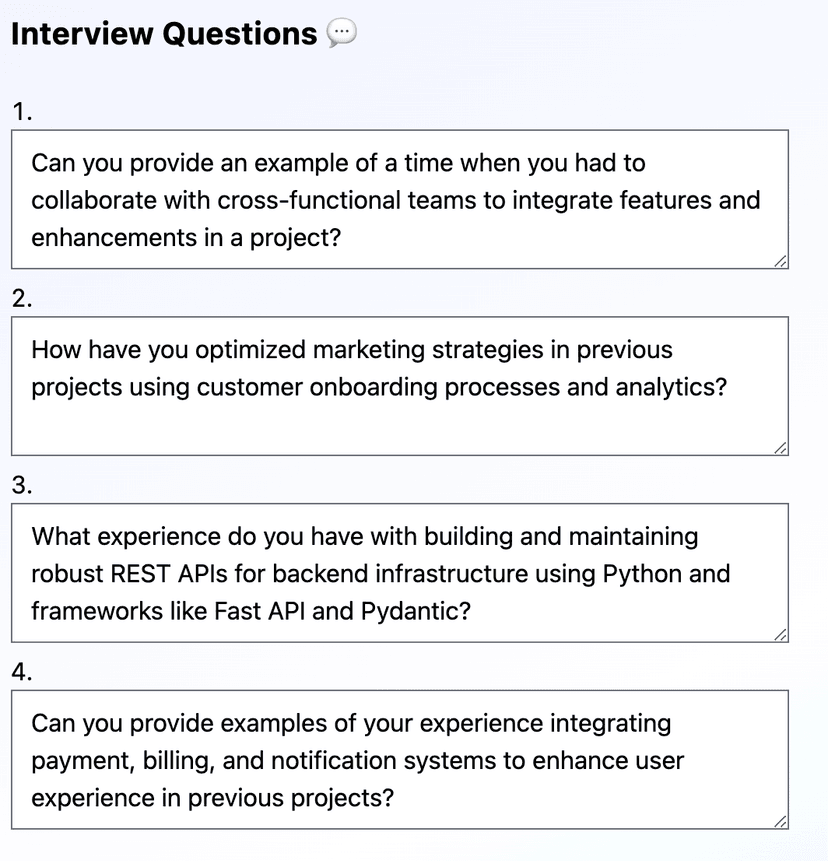
Screening Questions
Screening questions are extracted and matched against a candidates resumes. These could include:
- Right to work
- Required education level
- Minumum years of experience
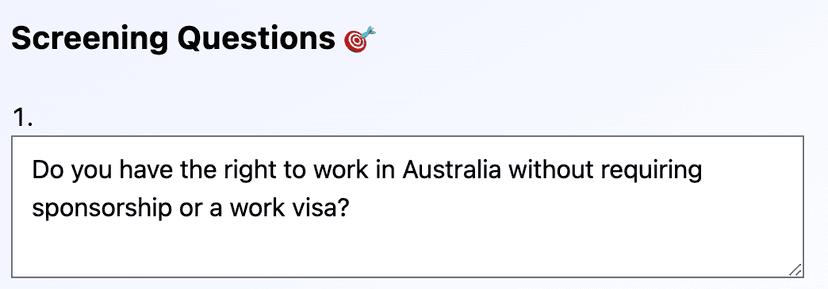
Skills
Hard skills are extracted from the job ad,

Along with soft skills.
To edit these skills simply click, and then tab or enter to save.

Update Job
You are able to edit the job questions, requirements and skills after they have been generated. It is recommended that you do this before publishing a job, so that all candidates have the same initial questions.
If you make changes and click Update Job after the job is published, you will be asked to confirm these changes, and a new job posting record will be created and tracked against interviews.
Publish Job
Once you are happy with the job ad, you can publish the job by toggling the switch.
You will see a posting history for when you opened and/or closed the job.

And a link where candidates can apply to the job.